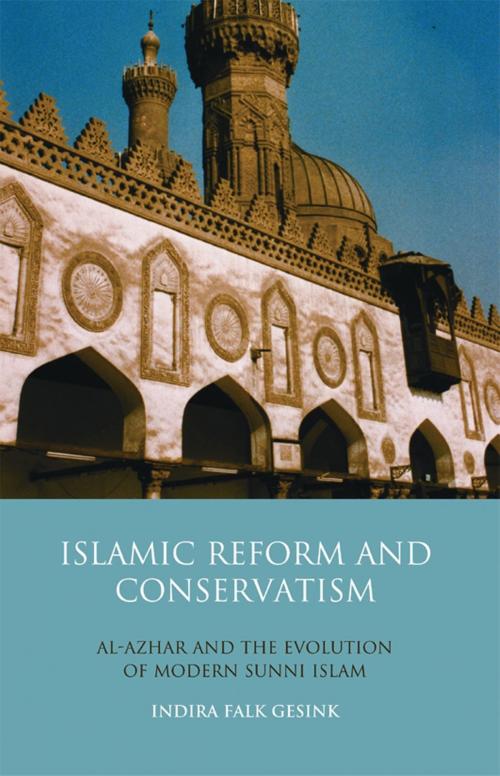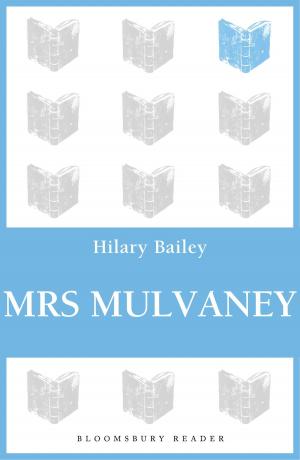Islamic Reform and Conservatism
Al-Azhar and the Evolution of Modern Sunni Islam
Nonfiction, Religion & Spirituality, Middle East Religions, Islam| Author: | Indira Falk Gesink | ISBN: | 9780857736932 |
| Publisher: | Bloomsbury Publishing | Publication: | November 30, 2009 |
| Imprint: | I.B. Tauris | Language: | English |
| Author: | Indira Falk Gesink |
| ISBN: | 9780857736932 |
| Publisher: | Bloomsbury Publishing |
| Publication: | November 30, 2009 |
| Imprint: | I.B. Tauris |
| Language: | English |
The famed reform debates at al-Azhar Madrasa in nineteenth-century Cairo, one of the most influential centres of religious study in Sunni Islam, were enormously influential for twentieth-century Islamic thought. Here Indira Gesink offers a revisionist history of these debates over curricular and administrative reforms, and challenges our understanding of the struggle between Islamic reform and conservatism.
It has been assumed that famous Islamic modernists such as Muhammad 'Abduh instigated the reform movement and the ideas of modern religious life that emanated from al-Azhar and permeated Islamic society, a development that religious conservatives opposed. Gesink draws on obscure, but important, archival sources, legal manuals and ephemeral journals to tell the other side of the story, and to illustrate the important contributions of conservative scholars to the evolution of twentieth-century Sunni Islam.
Conservative 'opponents of reform' engaged many of the same issues as reformers and actively pursued alternative visions of reform. In fact, texts of enacted reforms show greater attention to concerns of conservatives than to the original programmes of Muhammad 'Abduh, and conservatives led 'ulama committees that generated and implemented reforms. Had religious conservatives not contributed to the reforms of the early twentieth century, these reforms would have lacked the crucial cultural assonance that permitted them to become rooted in public life, in an environment of rising nationalist anti-British sentiment which saw 'Abduh as a willing agent of colonialists. The debates ultimately catalyzed public acceptance of secularism, Islamic modernism and radical Islamism. They also led to the practice of lay legal interpretation, the proliferation of competing interpretations within Sunni Islam and the rise of militant sects.
By drawing on obscure archival sources and restoring conservative voices to the debate, 'Islamic Reform and Conservatism' presents a more nuanced picture of the al-Azhar debates and the forces that shaped Islamic religious life in the twentieth century than has become the norm. Its original scholarship and fresh analysis make this book indispensable for all those interested in the modern Middle East, religious history, Islamic studies, radical Islam and militancy, secularism, modernism and religious reform.
The famed reform debates at al-Azhar Madrasa in nineteenth-century Cairo, one of the most influential centres of religious study in Sunni Islam, were enormously influential for twentieth-century Islamic thought. Here Indira Gesink offers a revisionist history of these debates over curricular and administrative reforms, and challenges our understanding of the struggle between Islamic reform and conservatism.
It has been assumed that famous Islamic modernists such as Muhammad 'Abduh instigated the reform movement and the ideas of modern religious life that emanated from al-Azhar and permeated Islamic society, a development that religious conservatives opposed. Gesink draws on obscure, but important, archival sources, legal manuals and ephemeral journals to tell the other side of the story, and to illustrate the important contributions of conservative scholars to the evolution of twentieth-century Sunni Islam.
Conservative 'opponents of reform' engaged many of the same issues as reformers and actively pursued alternative visions of reform. In fact, texts of enacted reforms show greater attention to concerns of conservatives than to the original programmes of Muhammad 'Abduh, and conservatives led 'ulama committees that generated and implemented reforms. Had religious conservatives not contributed to the reforms of the early twentieth century, these reforms would have lacked the crucial cultural assonance that permitted them to become rooted in public life, in an environment of rising nationalist anti-British sentiment which saw 'Abduh as a willing agent of colonialists. The debates ultimately catalyzed public acceptance of secularism, Islamic modernism and radical Islamism. They also led to the practice of lay legal interpretation, the proliferation of competing interpretations within Sunni Islam and the rise of militant sects.
By drawing on obscure archival sources and restoring conservative voices to the debate, 'Islamic Reform and Conservatism' presents a more nuanced picture of the al-Azhar debates and the forces that shaped Islamic religious life in the twentieth century than has become the norm. Its original scholarship and fresh analysis make this book indispensable for all those interested in the modern Middle East, religious history, Islamic studies, radical Islam and militancy, secularism, modernism and religious reform.















